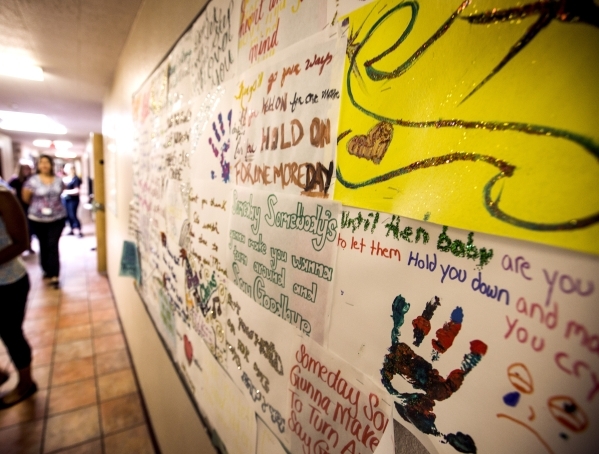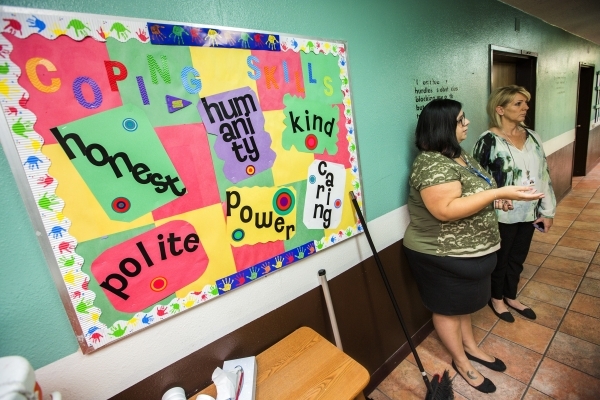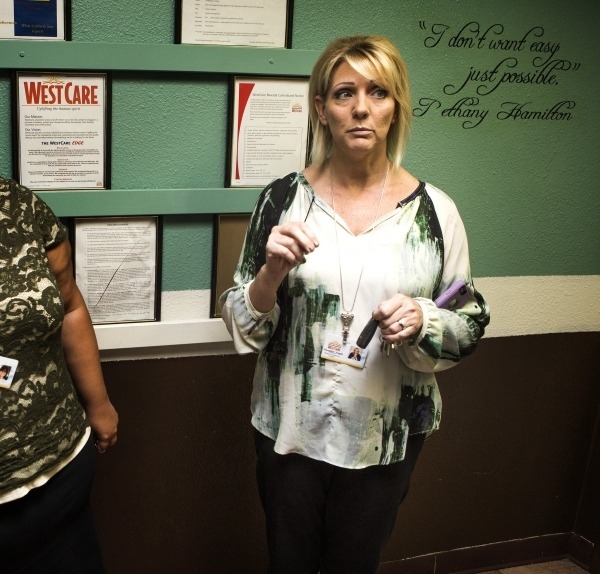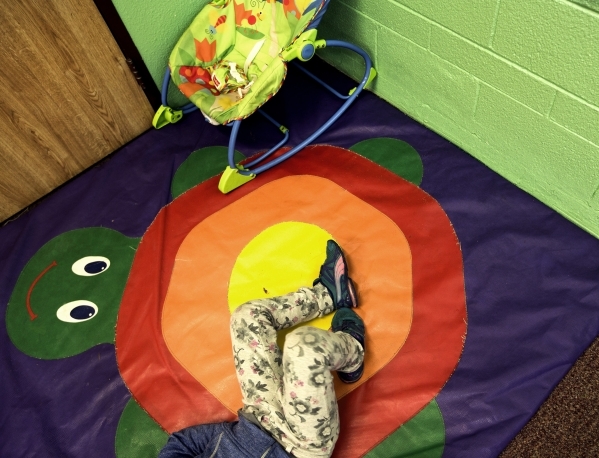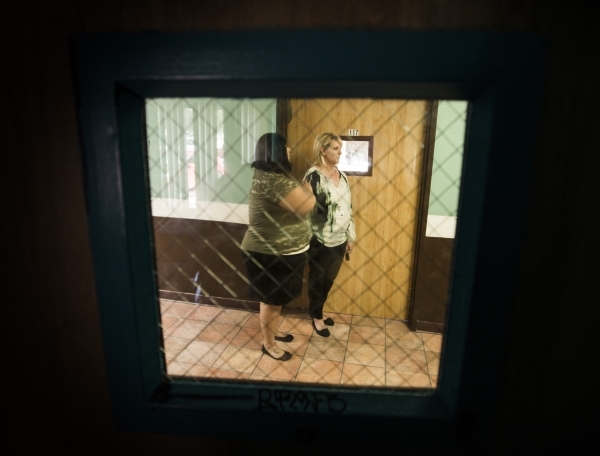WestCare campus provides emergency shelter for youths
The three beds in each room are meant to look warm and inviting with colorful walls and positive messages. Although the messages may not be taken kindly, and letters are peeled off to create distorted words, the invitation remains the same for Nevada's the at-risk youth seeking shelter at WestCare Nevada's Women and Children's Campus, 5659 W. Duncan Drive.
"We do get a lot of angry kids that come here, but you have to remember that these kids have gone through so much," said deputy director Alyson Martinez. "They tend to get creative with the signs posted on the wall, God bless them."
The Women and Children's Campus in Las Vegas is a 33,453-square-foot facility that provides clients and their children emergency shelter, food, employment assistance, case management, education and core supportive and wraparound services.
The youth portion of the campus helps runaways, foster children and other troubled youths between the ages of 10 to 17 through a variety of programs and services, which specifically focus on their needs. Its shelter provides enough beds for 15 female or male youths at a time.
"They can come here on their own time and leave on their own time," said director Heather Frost. "This place is not locked down; it's meant to let kids know that they can come and have a safe place to sleep at night. We've never had to turn someone away."
For substance abuse treatment and rehabilitation, WestCare provides outpatient options for individuals 12 to 17 years old.
"If a child comes to us under the influence, then we will monitor them if they are stable. If they're not stable, we will send them to the hospital," Frost said.
Most of the youths that arrive to the campus are referred through the Clark County Department of Family Services, the Department of Juvenile Justice Services or by Metro.
"They can come from broken homes to healthy homes with parental issues," Frost said. "A lot of these kids don't know the difference between surviving and living, but still others refuse to become a product of their environment."
The team at WestCare will assist youths to enroll in school, make doctor appointments and create positive changes.
The principle approach to adolescent treatment embraces the concept that behavioral change can occur though positive peer support, according to Martinez.
Although the term peer pressure is usually seen as negative, in a therapeutic community, WestCare officials believe encouraging and motivating peer pressure can create positive change. An example of this in action is the support groups offered for youths to connect with one another.
Through the transitional living program, pregnant teens and young mothers learn life skills, are trained in positive parenting, and work to complete their education and secure employment.
Frost says the ages between childhood and adulthood can often be a confusing time. Adolescents deal with both physical and emotional development, which can lead to anger, frustration, anxiety, and stress.
Mental health and counseling appointments are also available to those who need it. In addition, youths are given community service and are put in charge of their rooms and other tasks to create a sense of responsibility.
"We want to teach them how to be a leader to create a sense of ownership," Martinez said. "They have a home here. We won't kick them out unless they become a major danger to themselves or others."
The nonprofit recently received a $350,000 grant from Nevada Women's Philanthropy to replace the damaged campus roof and to install 55 new energy efficient windows and 13 doors.
Its nursery is also in the middle of a renovation with plans to add additional equipment and childhood education specialists.
Women are allowed to use the nursery for children up to 8 while they wait to be approved for Temporary Assistance for Needy Families to cover daycare costs. Children can play with toys, watch cartoons and spend time in an outdoor playground.
Prevention services are also offered by a trained team of educators to teach youths how to be goal-minded adults in order to help prevent substance and gambling abuse.
Clark County prevention services information is available by calling 702-385-3330.
The campus plans to build transitional housing for women and children in the future.
"We'll get children that will get frustrated and check out, but they'll end up coming back," Frost said. "We must be doing something right."
Call 702-385-2020 or visit westcare.com.
— To reach North View reporter Sandy Lopez, email slopez@viewnews.com or call 702-383-4686. Find her on Twitter: @JournalismSandy.



